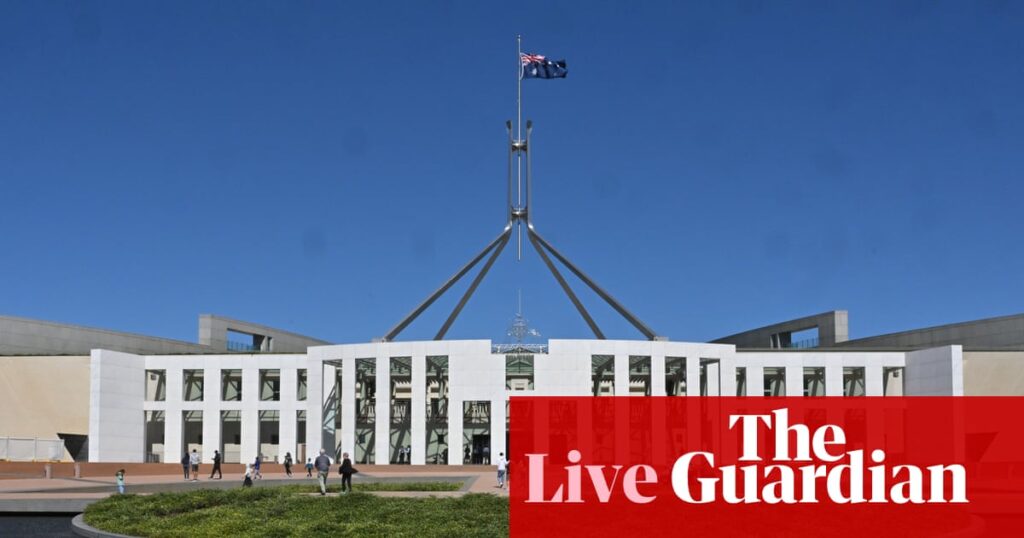
The National Anti-Corruption Commission (NACC) has confirmed it is investigating approximately 40 matters, including a significant case involving a grants scheme related to a commonwealth official. This revelation comes amid a series of political shifts and policy announcements across Australia on Tuesday, November 4.
In a statement, the NACC disclosed that the investigations span various categories, including seven concerning current or former parliamentarians and five related to parliamentary staff. The announcement underscores the watchdog’s ongoing efforts to address corruption at the federal level, with the NACC emphasizing its jurisdiction over commonwealth officials only.
Interest Rates and Economic Policies
On the economic front, the Reserve Bank of Australia has decided to maintain the official interest rate at 3.6%, following an unexpected rise in inflation. This decision is pivotal as it aims to stabilize the economy while addressing inflationary pressures that have surprised analysts and policymakers alike.
Meanwhile, the opposition has officially abandoned its controversial proposal allowing first home buyers to access their superannuation savings for housing deposits. Shadow Minister for Housing and Homelessness, Andrew Bragg, confirmed the policy’s demise, citing the need for a focus on housing supply rather than demand-side measures.
Streaming Services and Local Content
In the realm of media and entertainment, the federal government has introduced new content obligations for major streaming platforms like Netflix. These services will now be required to allocate 10% of their Australian expenditure towards local content, including dramas and arts programs. This move is seen as a vital lifeline for the Australian screen industry, which has faced challenges due to global competition and a downturn in local production.
Industry leaders have welcomed the announcement, with Screen Producers Australia and the Media, Entertainment & Arts Alliance highlighting the potential for renewed opportunities for creative professionals. However, some in the industry had advocated for a higher quota, reflecting ongoing debates about the best ways to support domestic content creation.
Political Dynamics and Legislative Developments
The political landscape is also witnessing significant developments. The Greens have expressed support for the new streaming content quotas, emphasizing the importance of Australian stories on screen. Concurrently, they are pushing for a parliamentary inquiry into the Aukus security pact, advocating for greater transparency and independence in foreign policy.
In legislative news, the Senate has initiated two inquiries into the aged care system, focusing on the Community Home Support Program and the new Support at Home program. These inquiries aim to address concerns about pricing mechanisms and the availability of care services for older Australians.
Controversies and Protests
Elsewhere, political tensions continue to simmer. Labor has blocked Nationals MP Kevin Hogan from speaking on a public importance debate, a move seen as retribution for a Senate revolt over government transparency. This procedural maneuver highlights the ongoing friction between government and opposition parties.
Meanwhile, protests erupted in Sydney against a state-sponsored defense conference, with demonstrators criticizing the presence of Israeli weapons companies. Thirteen individuals were arrested, reflecting the contentious nature of defense industry events and their international implications.
Looking Ahead
As these stories unfold, the implications for Australia’s political and economic landscape are profound. The NACC’s investigations could lead to significant reforms in governance and accountability. Economic policies, particularly those affecting housing and inflation, will continue to be scrutinized as the government seeks to balance growth and stability.
The cultural sector stands at a crossroads, with new content obligations promising to reshape the media landscape. Political dynamics remain fluid, with parties navigating internal and external pressures as they address the nation’s most pressing issues.
As these developments continue to evolve, stakeholders across sectors will be watching closely to see how these policies and investigations impact Australia’s future.





